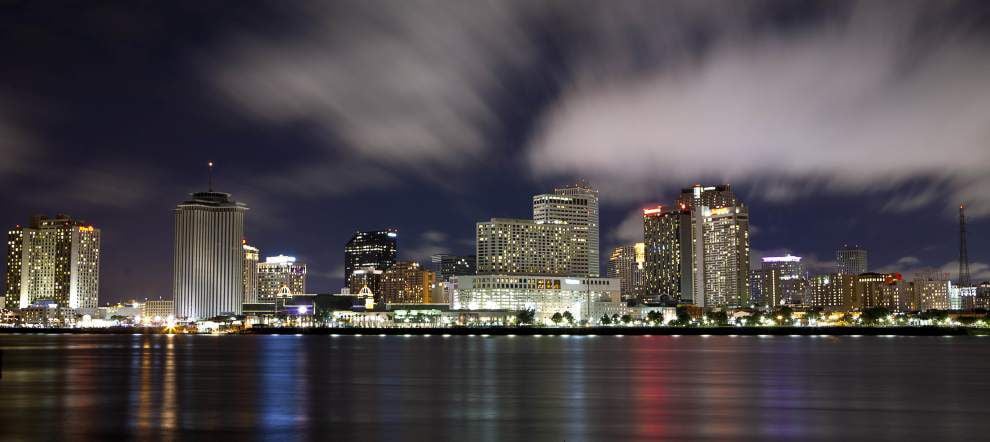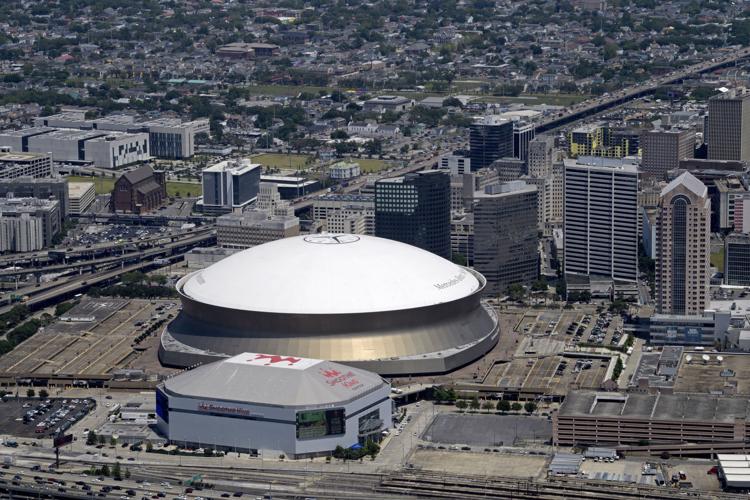We’re not here to tell you there’s nothing unique about New Orleans or the cultural traditions that flourish there. But the collective obsession with measuring the “New Orleans-ness” of po-boys and parades can suction up all the air in the room. We wind up choosing sides — authentic vs. inauthentic, native vs. transplant, etc. — that cover up deeper divisions. Like the haves versus the have-nots.
Compare New Orleans to its evil plastic twin, Las Vegas. Ours is a city drenched in history. Vegas was conjured out of the desert within some readers’ lifetimes. New Orleans boasts deeply rooted culture and cuisine. Vegas basks in the gaudiness of knock-off versions of Paris or the pyramids. Both are tourist destinations defined by laissez les bon temps rouler and however that translates in Nevada. But our industry is built largely on “authentic” experiences that those in Vegas couldn't care less about.
And therein lies the rub — because Vegas does much more than Louisiana to care for those whose job it is to deliver experiences. Culinary Union Local 226 guarantees a livable wage and real benefits for more than 130,000 Nevadans. It fights for education investment and immigrant rights. In New Orleans, most people who make our largest industry work — the musicians and cleaning staff; the cooks and cab drivers; the artists and retail workers — do so for poverty or near-poverty wages. But violations like “healthy” gumbo incite more outrage than unaffordable housing, undemocratic control of education, and underpaid jobs. Perhaps how we think about this place fuels injustice and our stubborn inability to overcome it.
The much-hyped Opportunity Zone tax break program, offering shelter from capital gains taxes for people who invest in designated struggling ar…
When a Starbucks opened in the Marigny last year, the backlash was fierce. “Coffeehouses,” one commentator wrote, “are an integral part of local cultural identity.” Enter the Yelp reviewer who hailed Starbucks as “a sanctuary free of Zydeco, firearms, white trash, and socially acceptable alcoholism.” Was “Elaina B” a troll? No matter. Her post went viral, and she was skewered as a typical transplant fueling gentrification. Meanwhile, another post was barely noticed: “Steady employment, good wages, health insurance & educational benefits. What exactly is the problem?”
Without defending corporate uniformity or Starbucks’ labor record, we worry that gauging New Orleans-ness on an ever-more precisely tuned meter of authenticity obscures who gets what, when, and how.
We’ve both been contacted by reporters seeking musicians displaced from their neighborhoods because of rent intensification. It’s a compelling story that cuts to the heart of threatened local traditions. Music and culture enhance property values, while the people who make that culture are pushed out of the neighborhoods they live in, practice in and raise children in.
But the close-up on culture blurs the larger frame. What about the maids, cooks, and others working in our culture industry? What about the loss of thousands of well-paying jobs at the shuttered Avondale Shipyards? That news was a blip on the radar compared to the fury over a “jazz funeral” for Princess Leia. Are displacement and massive upward distribution of profit oaky if they don’t affect “authentic” culture or threaten historic neighborhoods?
The outsourcing of our schools to private entities has removed a key social right from our democratic control. Rising housing costs and a largely unregulated hotel industry in short-term rentals have resulted in tremendous profit for a handful of people but growing dislocation for thousands. The majority of those who make our largest industry work — performers and bartenders; tour guides and dishwashers, etc. — have zero bargaining rights. These injustices — and the limited political and organizational will to challenge them — are not specific to New Orleans. They are avatars for global insecurity and a growing abandonment of common good.
How does this relate to the idea of New Orleans as an exceptional place with authentic cultural traditions? In our book, we write that such commitments hijack the terms of public debate and sideline the few who are pushing against this tide. When we decry gentrification as a threat to authentic communities, we miss its raison d’etre: the displacement of many for the profit of few. Too often, in celebrating the vibrancy of our traditions, we fail to understand that they’re also a tremendous driver of profit for those who can capitalize on them. We’d rather see our culture as threatened by commodification and celebrate its authenticity than accept its embeddedness in the market and fight to give everyone — from maids to musicians — their rightful share.
Caring about culture and the exploitation of the people who make it is not a zero-sum game. But when the debate is solely about the authentic New Orleans-ness of this or that, we’ve already lost the battle of who profits and who is lucky to get by. Below the surface of local culture, down in that Mississippi mud, are layers of inequality that need excavation and eradication.
In February, a group of Vietnamese refugees stood outside a New Orleans City Council meeting and, alongside their American-born neighbors, pro…
Thomas Jessen Adams lives in New Orleans and Sydney is senior lecturer of history and American Studies at the University of Sydney. Matt Sakakeeny lives in New Orleans and is associate professor of music at Tulane University.
They are editors of "Remaking New Orleans: Beyond Exceptionalism and Authenticity," to be released Tuesday, September 24 at 6 p.m. at Mimi’s in the Marigny.









